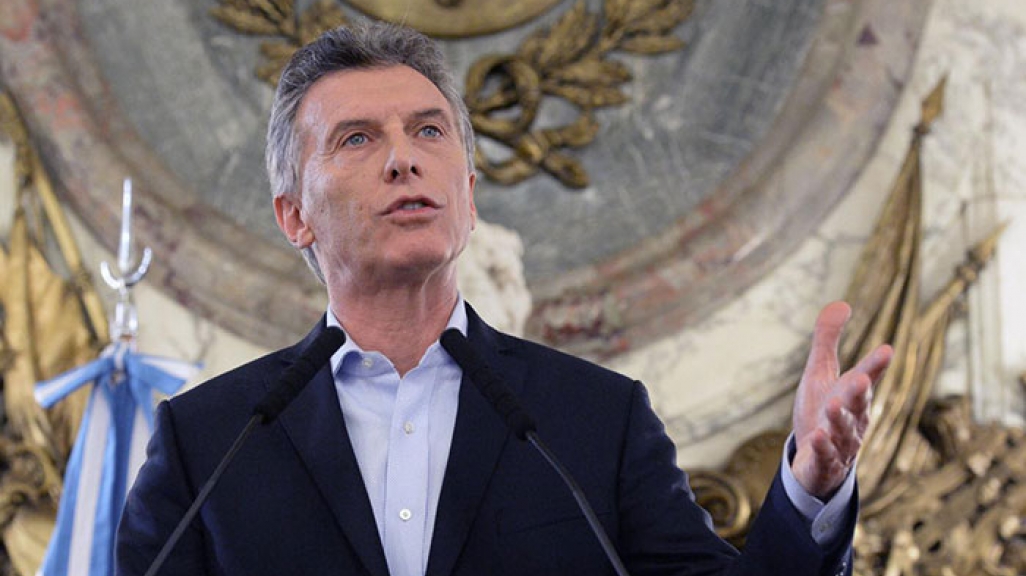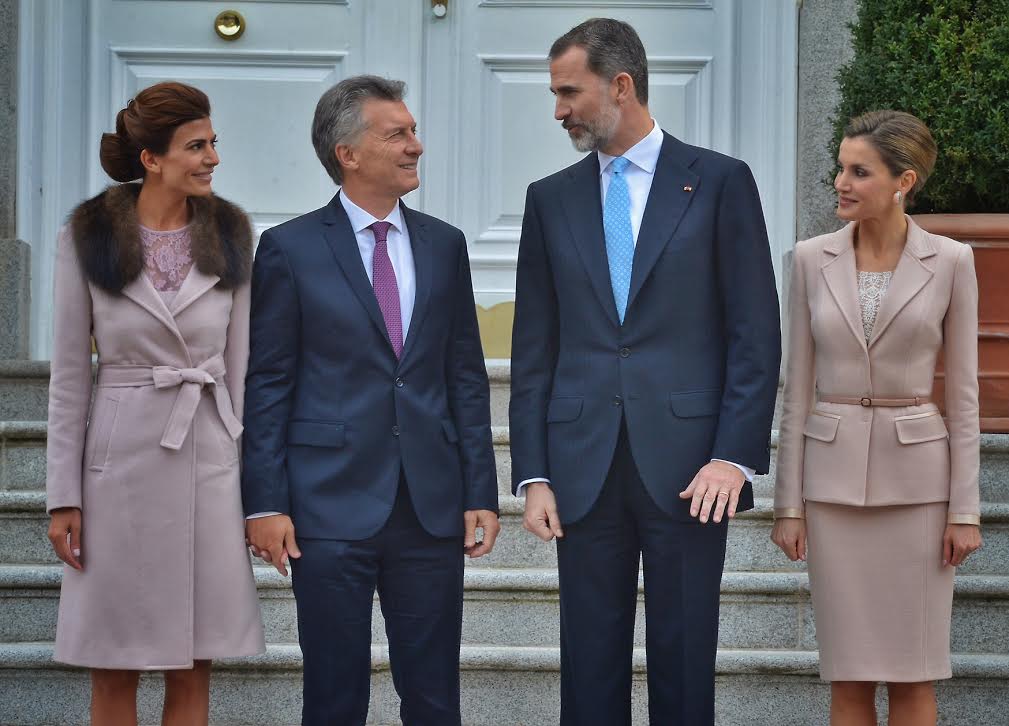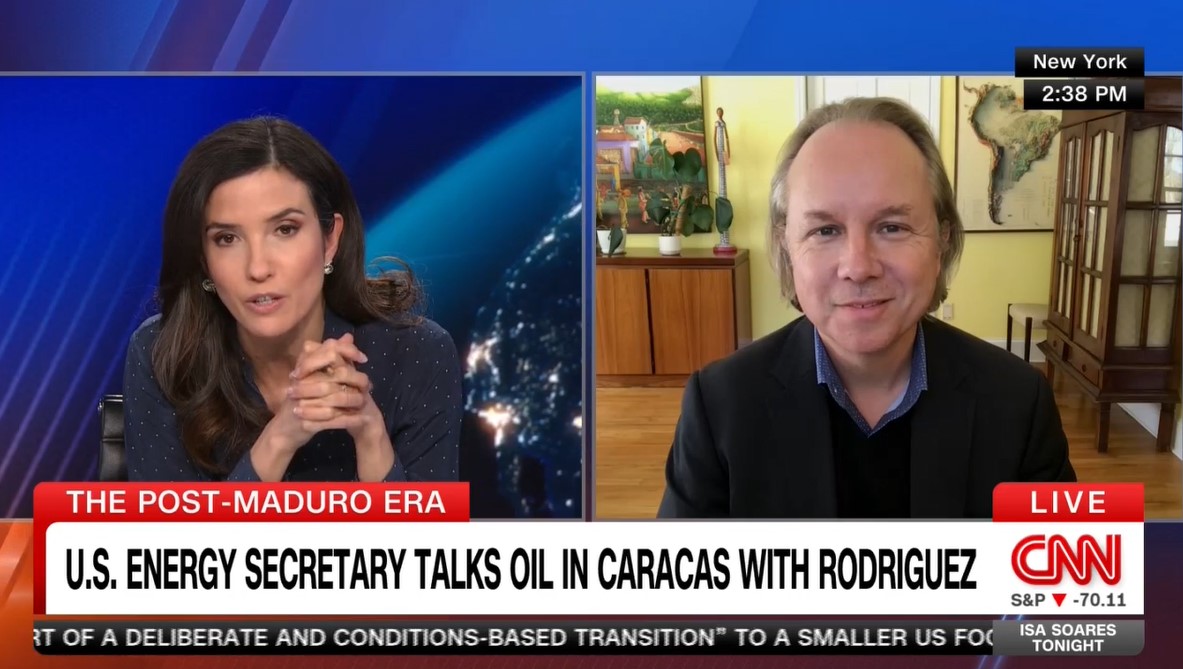Viewpoint: Macri's Visit to Washington Signals Thaw in U.S.-Argentina Ties Is Still On
Viewpoint: Macri's Visit to Washington Signals Thaw in U.S.-Argentina Ties Is Still On
The Argentine president met with Donald Trump on April 27.
Photos of then-U.S. President Barack Obama and his Argentine counterpart Mauricio Macri laughing and joking together with spouses in the resort town of Bariloche last year sent a clear message: the frosty relationship between their two nations was warming up.
Macri’s April 27 visit to Washington—the first by an Argentine president to the White House in more than a decade—seeks to consolidate the sense of “coming in from the cold” by strengthening both the relationship with U.S. President Donald Trump and cooperation mechanisms.
Mending fences
The relationship between Buenos Aires and Washington, long marked by ups and downs, experienced a particularly rocky patch over much of the previous decade during the administration of Cristina Fernández de Kirchner, often referred to as CFK. The former Argentina leader often used fiery anti-U.S. rhetoric, took on a high-profile battle with U.S. holdout creditors of Argentina’s defaulted debt, and even went so far as to subtly imply that the U.S. government might be behind a plot to unseat her. Since taking office in December 2015, Macri has done a 180° on CFK’s stance and focused on reintegrating Argentina into global political and economic affairs, including revamping ties with the United States.
But Obama’s high-profile 2016 visit to Argentina, which occurred just three months after Macri took office, was the first official visit by a U.S. president to the South American country in nearly two decades and signaled that Macri’s government marked a significant rupture with that of his predecessor. At the time, Obama announced the declassification of a series of U.S. documents related to Argentina’s military dictatorship, a symbolic move aimed at resetting the relationship. Since then, the countries have taken a number of steps to boost collaboration, including signing a tax-sharing agreement, opening a commercial dialogue, and boosting security cooperation.
Ties under Trump
This week’s visit by Macri to the United States allows the Argentine government to demonstrate its continued commitment to improving bilateral relations. This became particularly pertinent, given that the government’s engagement strategy had to be recalibrated after several high-level officials in the Macri administration indicated a preference for Democratic nominee Hillary Clinton during the 2016 U.S. presidential campaign.
The summit will also be important, as the Trump administration’s more inward-facing orientation poses a potential challenge for Macri’s government, which is seeking to boost commercial ties. The trip offers an opportunity to show that productive engagement will continue, regardless of any policy shifts made stateside. It is notable that Macri is only the second Latin American president to meet in-person with Trump after Peruvian President Pedro Pablo Kuczynski, ahead of both traditional partner Mexico and regional powerhouse Brazil.
Dialogue between Macri and Trump should focus on areas where there is common ground and little room for dispute—namely, the crisis in Venezuela and promoting democracy, the energy sector, and security cooperation. Under Macri, Argentina has taken more active regional leadership in calling for a resolution to the crisis in Venezuela, and the issue provides an opportunity for the two leaders to demonstrate a united front calling for a peaceful resolution to the situation and respect for democracy. Macri will also make energy a focus on his visit, making a stop in Houston to drum up investor interest in Vaca Muerta shale play. But the Argentine president will have to tread more carefully when comes it the issue of trade relations, as he risks wading into contentious disputes over Argentine exports of lemons and biodiesel.
Regardless of the bumps in the road ahead, relations between the two countries are set to keep improving. In the short term, current vacancies at the top diplomatic posts in both countries’ embassies will pose a challenge to bilateral diplomacy. However, the implementation of institutional mechanisms for longer-term engagement have begun and will not be easily derailed. A trade and investment framework agreement was signed in early 2016, and Florida Governor Rick Scott—a Trump ally—is in Buenos Aires this week with a delegation of 60 business leaders, and there is strong bipartisan support in the U.S. Congress for increased engagement. With all that in mind, there’s no reason to think that the thaw in U.S. relations initiated during Obama’s visit won’t continue.
Juan Cruz Díaz is a special adviser to the president and CEO at Americas Society/Council of the Americas and a managing director at Cefeidas Group. Megan Cook is a political and regulatory risks specialist at Cefeidas Group.










